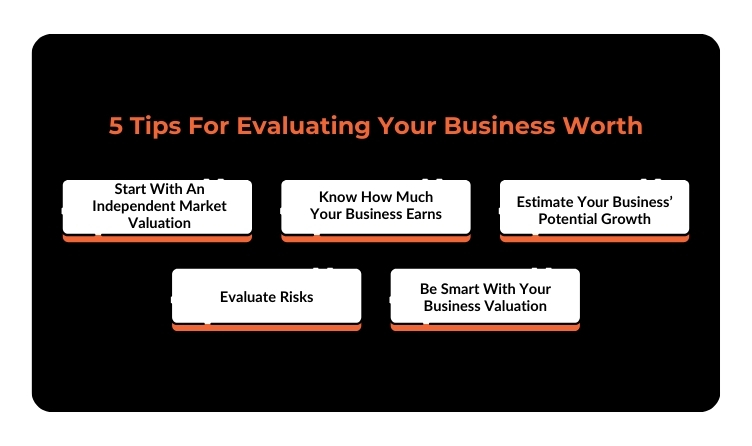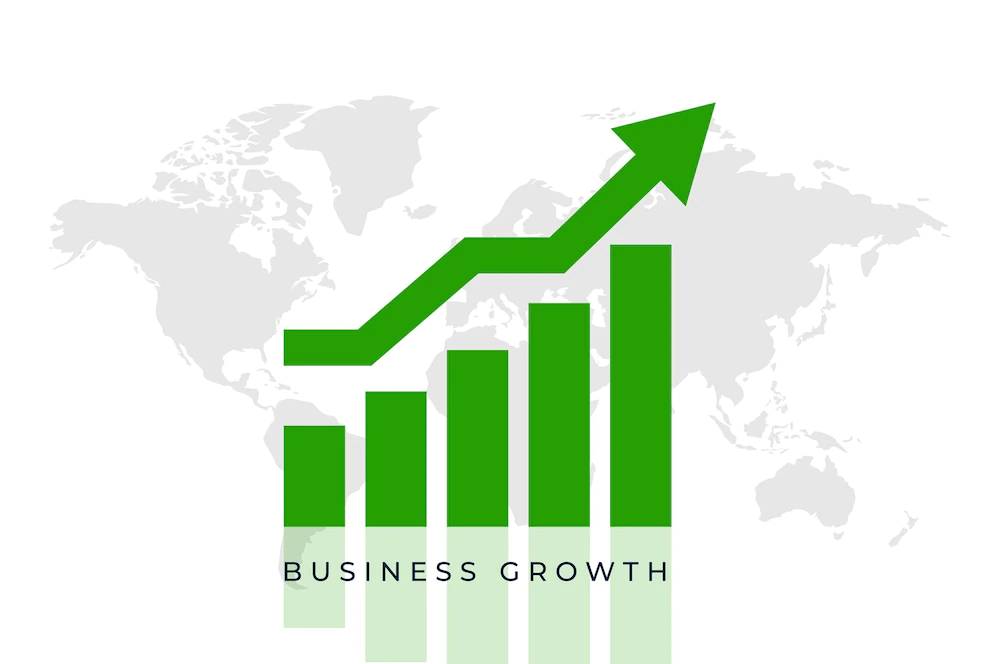How Much is My Business Worth?
4 Mins Read
Published on: 13 May 2022
Last Updated on: 11 November 2024

toc impalement
If you own a small business and are considering selling it, you know how tricky it can be to determine the proper valuation. To arrive at a correct figure, many factors need to be considered, such as cash flow, revenue, or future growth estimates.
Achim Neumann knows that depending on the industry your business is in or the level of risk, the final valuation of a company can vary significantly to the point where similar companies may end up with different valuations.
When you are serious about selling your business, you must closely examine some key issues. This way, when you come up with the correct figure, you can stick to it during negotiations with potential buyers and feel confident that you can easily justify your price.
5 Tips for Evaluating Your Business Worth

How do you know that your business is worth it? Most of the business handlers ask what my business is worth. And how do you know the exact value of the business? This is a very tricky task, but before starting your business, you must know the steps for evolving the value of the business.
However, the tips listed are mostly hacks and tricks that you can use to get a vague idea of the scale of your business. However, this is an inaccurate projection. Therefore, if you want a more comprehensive view of your business’ worth, consult a professional to help you in this endeavor.
With that note, here are some essential and practical tips to help you understand: “How much is my business worth?”
Let us dive right in!
1. Start With an Independent Market Valuation

Getting an independent third party to conduct a market valuation is an excellent place to start if you want to come up with a justifiable sales price. You can hire a firm that offers mergers & acquisition advisory, business brokerage, and professional financial services.
This way, you can be confident that the number has been arrived at objectively. Is a business plan worth the time and effort? Yes, this is worth it. You only have to know what the market evaluation steps are. That means you must know the steps you must follow to reach your exact goals.
By hiring a firm that will conduct an independent market valuation for your business, whoever is interested in buying it will feel reassured that this was done by a professional and not by someone with ties to your business. This analysis will likely include different perspectives: asset-based, income-based, and market-based.
2. Know How Much Your Business Earns

Besides the independent analysis, it is also essential for you to know how much your business earns and how profitable your business is. Anyone interested in buying it will undoubtedly want to know whether the company can make money and how much.
Look at your numbers, but consider whether accounting practices such as amortization or depreciation make you miss the business’s actual value. Also, taxes can fluctuate significantly yearly, depending on currently available tax breaks.
To develop an easy business evaluation process, you may use the EBIDTA method, which shows the earnings before applying the interest rates on debt, taxes, depreciation, or amortization.
3. Estimate Your Business’ Potential Growth

If your business has been around for a while, you have a track record of how much it has grown year over year. It is common for companies to increase over time, but the faster your business is growing, the higher its value will be.
Analyze past trends, and you can make a forecast for reasonable and estimated rates for future earnings and growth. This can be a convincing figure for anyone looking to buy it. Is a business degree worth it? Do you need a business degree to analyze the risk factors? Not actually. Your knowledge is enough to plan your business growth.
4. Evaluate Risks

Every industry faces different risks. While some can boast about having stable prospects and little or no competition, the vast majority have to deal with significant challenges (which may be associated with a potential for immense growth).
Using a discounted and overlooked cash flow method, you will take those risks into the accounts by discounting the future earnings at a specific percentage rate. The discount rate will likely be higher if there is a significant risk.
5. Be Smart With Your Business Valuation

Ultimately, your business may be worth what you are willing to sell it for and what a potential buyer is willing to pay for it. The valuation tools mentioned above are a solid starting point for negotiations since they offer both parties important information.
Should the buyer question what you are saying your business is worth, they will need help finding flaws in the assumptions or logic of the valuation.
However, many small business owners feel they should also get something for the years of hard work and personal sacrifice this business has represented. They know that it is through their sweat equity that the company has grown to the level it has now, and when it comes to selling, they are probably not willing to sell if that sacrifice is not taken into account.
Conclusion:
To know your business worth, you must first learn all these steps. Then your ideas will be getting more precise. Before you step into the water, you have to measure the depth of the water first. Only then can you successfully reach your target. So, what types of business strategies are you going to follow? Let us know through the comment sections, and if you liked this blog post, then keep an eye out for more such content on our website.
Read Also:


















Comments Are Closed For This Article